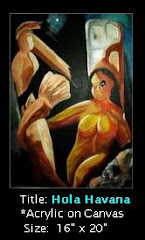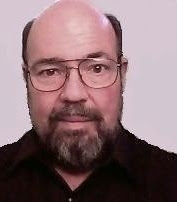
In 1954, television was still the new kid on the entertainment block, and radio and the movies were still king. Some regions of the country were yet to see their first broadcast station.
TV was making inroads, however.
RCA introduced their first color set that year – at the astounding price of $1000 – equivalent to about $8,000 in today’s dollars. A hefty price tag for a 15-inch screen, with a less than perfect picture.
Movie studios could see the writing on the wall, however, and they quickly began producing content for this new medium.
While Warner Brothers produced a long string of hit TV shows (Cheyenne, Maverick, 77 Sunset Strip, Lawman, etc.), it was Republic Studios that garnered the first TV Emmy Award for a `Western or Adventure Series’ in 1955.
The show was Stories of the Century, and it starred Jim Davis as railroad detective Matt Clark, and for most of the series run - Mary Castle as his undercover partner Frankie Adams.
Although it ran only 39 episodes, and failed to revive Republic Studio’s flagging finances, the series is well remembered today for its solid action sequences and early appearances by many soon-to-be famous actors.
Richard Jaeckel played Billy the Kid and spaghetti western legend Lee Van Cleef appeared as Jesse James. Richard Webb showed up to play John Wesley Hardin, Jack Elam portrayed Black Jack Ketchum, and Marie Windsor played Belle Starr.
The `high concept’ for this series was to dramatize the lives of famous western outlaws, using a fictitious railroad detective (Matt Clark) as being in on, or nearby their final fate. This despite the fact that these `stories’ spanned nearly 50 years of western history.
This contrivance aside, the opening narration to each episode read: "The official newspaper files of the early west record many stories of famous and notorious characters of that period . . .”
After which Jim Davis would identify the outlaw (or outlaws) that would be the subject of that night’s episode.
While the series makes some attempt at historical accuracy (at least dates and places), the events shown don’t always agree with the historical record.
This was, first and foremost, entertainment . . . not a documentary.
Republic studios – best known as producers of western movies – had ample footage from earlier productions that they could weave into this series. Scenes where Quantrill raids Lawrence, Kansas in 1863 comes from Raoul Walsh's DARK COMMAND (1940), and the wagon chase scene from WAR OF THE WILDCATS (1943) shows up in the Black Jack Ketchum episode.
By matching up clothes and uniforms to the scenes lifted from older movies, the director managed to blend new footage with the old, giving the low-budget series a more expensive `feel’.
Add in some well-staged fisticuffs or gun play, at least one chase scene, and the comeuppance of the bad guy at the end, and you had a 30 minute episode.
Tall, rangy Jim Davis (who would gain greater fame as Jock Ewing in Dallas), was a veteran of Republic Oaters of the 1940s, and could be both likable, or tough as nails, when the scene required it.
Mary Castle as Frankie Adams added a bit of welcome estrogen to the mix, as Clark’s beautiful but very capable partner. A role model that was – for TV at least – a bit ahead of its time.
The problem with the series was that with each outlaw captured or killed in one episode, in short order the more famous denizens of the west has been taken care of, and the writers had to find more and more obscure bad men (or women) to profile.
Hence we got episodes on little known rascals like Joaquin Murietta, Bill Longley , and Burt Alvord mixed in with tales of Geronimo, Billy The Kid, and the Doolin Gang.
After 39 episodes, they were running out of material.
The Internet Archive currently has 17 episodes of this series available to watch or download. You can get a complete listing at this link.

Jim Davis would work steadily in TV until his death in 1981, while starring in the hit primetime soap Dallas.
Between 1958-1960 he co-starred with Lang Jefferies in RESCUE 8, about a Los Angeles Fire Rescue unit, which pre-dated the TV show EMERGENCY by more than a decade.
Mary Castle, who at one time was viewed as possible replacement for Rita Hayworth, fared less well.
She was married briefly three times, and her personal life derailed badly due to alcohol . After several arrests in the late 1950s for intoxication, her acting career eventually evaporated.
Her last acting credit is from an 1962 episode of Gunsmoke, and the character is just listed as `Saloon girl’.
Castle died in 1998 at the age of 67 of lung cancer.









